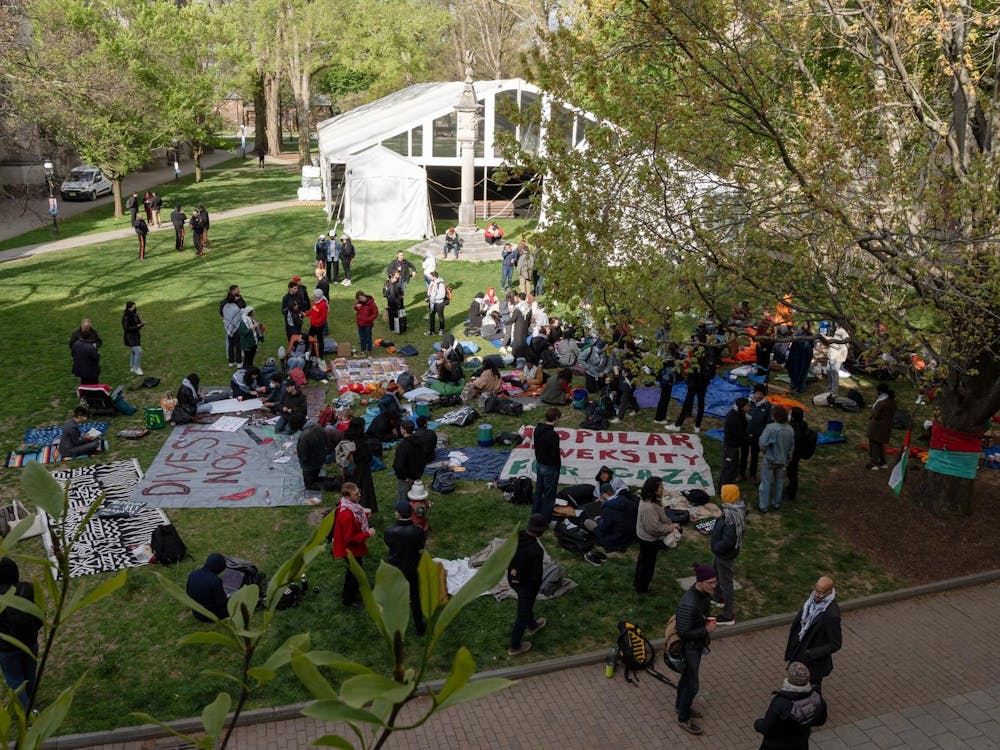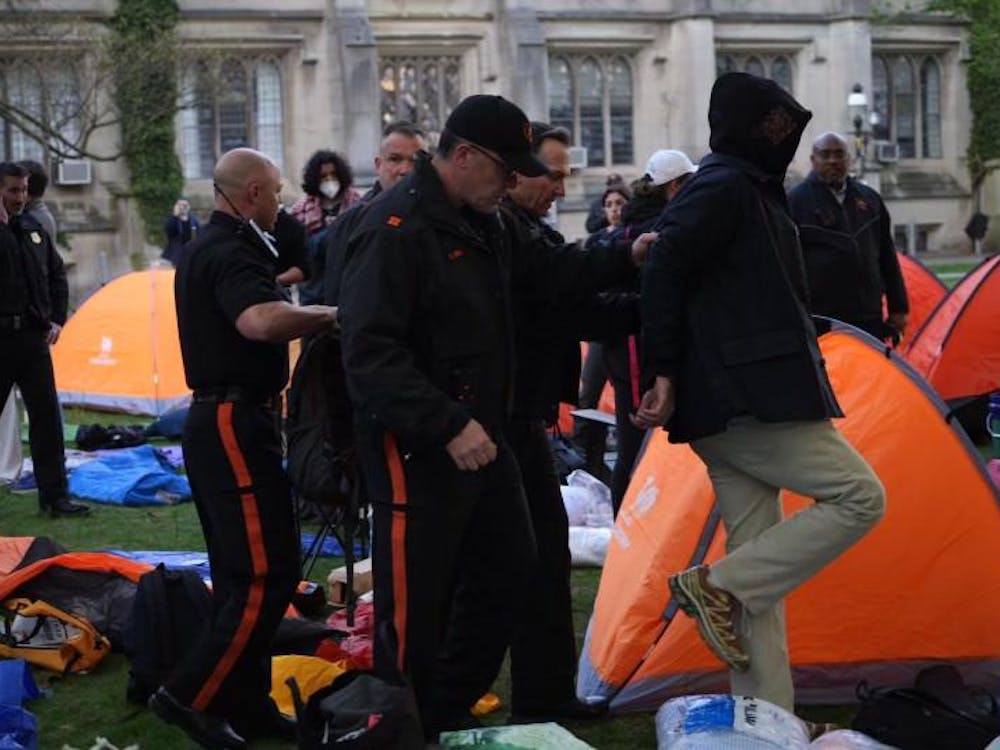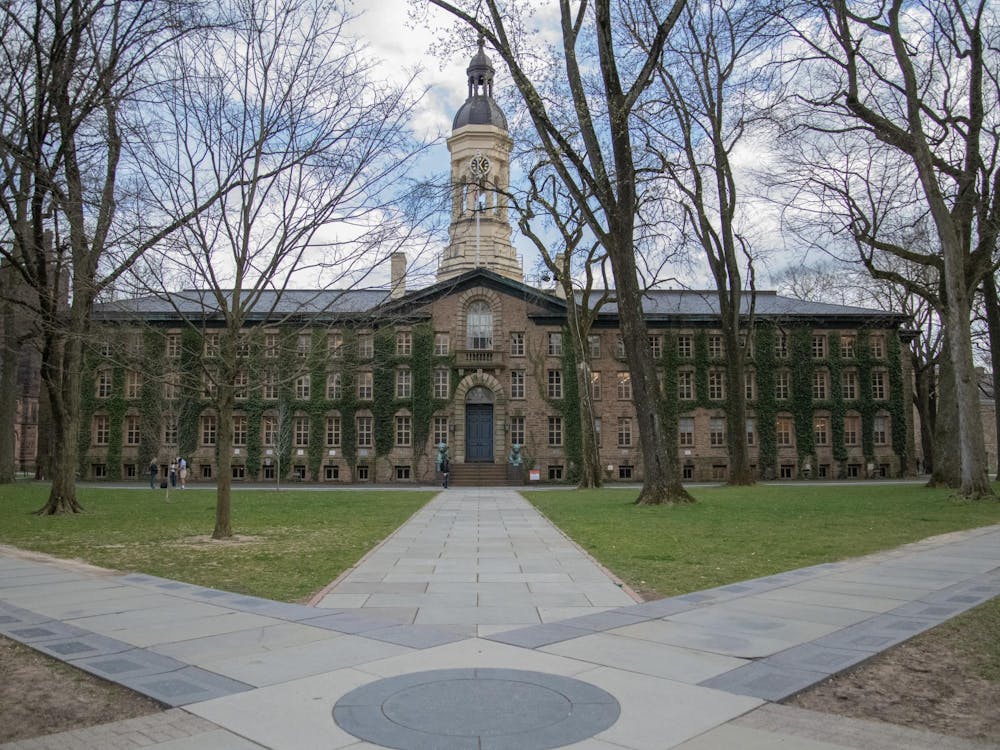Chinese dissident Chen Guangcheng called for the worldwide recognition of universal human rights and proposed measures to end to the Chinese government’s repression of its people in a lecture delivered at the University Wednesday night.
Speaking through a translator, Chen emphasized the need to examine human rights from a global perspective in an increasingly interconnected society. “The world has become smaller thanks to information technology and the advancement of other technologies,” he said. “Nations have become closer.”
The existence of a totalitarian regime in the world cannot be ignored or left to the people of that nation, because the result will be the erosion of values and respect for human rights worldwide, Chen argued.
A recently appointed fellow at the Witherspoon Institute’s Simon Center on Religion and the Constitution, The Lantos Foundation for Human Rights and Justice and the Catholic University of America, Chen Guangcheng is a self-taught lawyer by training who spent his career advocating for the disabled and victims of China's one-child policy.
“Chen is a visionary who looks ahead to a free and democratic China,” Simon Center Director Matthew Franck told The Daily Princetonian in an interview.
He added that while Chen has no official agenda as fellow at the Witherspoon Institute or its associate organizations, he fills a niche in the organization by bringing practical experience in promoting human rights to the table.
“We want to help him to be even more visible and even more effective at advancing his cause,” he said. “We’re just proud to support him in his call for universal human rights.”
His appointment at the Witherspoon Institute will last three years, The Guardian reported.
Throughout his lecture, Chen cited specific cases of human rights violations in China and emphasized the role of superpower nations in supporting the call for democratization of the Chinese regime. He also laid out a seven-point plan to rectify the “systematic crimes against humanity that are being committed in an organized manner” in his home country.
His plan includes establishing a database of human rights violators, increasing international funding for software that breaks down firewalls as a means to promote internet freedom, encouraging nations to demand that the Chinese government end religious persecution and the “one-child policy,” forming an inter-parliamentary body on human rights, calling on legal experts to publicly support human rights lawyers in China and asking American citizens to contact their representatives in support of these measures.
The need to prioritize the defense of human rights around the world was central to Chen’s proposal. Chen urged democratic governments to use theirinfluence to encouragetotalitarian governments such as China to adopt the universal values of freedom.
“Big or small, as long as we take action ... we can say our practical actions have changed the world and made it a better place,” he said.

Chen was last on campus in March, when the Whig-CliosophicSociety presented him with the James Madison Award for Distinguished Public Service and hespoke briefly to the ‘Prince’ about the state of human rights in China.
The lecture, titled “China and the World in the 21stCentury: The Next Human Rights Revolution,” was sponsored by the Witherspoon Institute.








